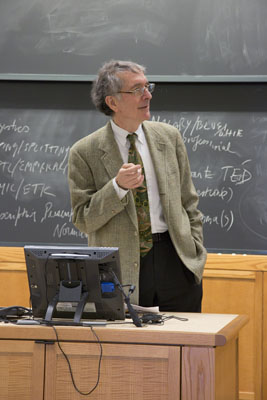
At public universities, Es scheint allgemein bekannt zu sein, dass alles, was über das E-Mail-System der Universität kommuniziert wird, einer Überprüfung unterliegt. Heute stellt sich die Frage: Hat der Harvard University, dessen Position in der Frage der Privatsphäre scheint weniger eindeutig, die richtige Entscheidung treffen, um heimlich suchen Sie die E-Mail-Konten 16 Wohnsitz Dekane, ohne vorher informiert,? The Harvard investigators were looking for information related to a leak about the University’s cheating scandal in which about half the students in an undergraduate spring class called “Introduction to Congress” were thought to have been involved. As reported in the Boston Globe on March 10, the deans whose emails were searched were informed of Harvard’s actions on March 9, almost six months after the search took place. Was this an extraordinary circumstance in which Harvard University had no other option? Perhaps they concluded it was. Was there a better way to handle the execution given the respect due to Harvard’s esteemed academic community? From a legal and ethical perspective, what do people believe the right course of action should be for a trusted, honorable, private academic institution? I asked Howard Gardner, the John H. und Elisabeth A. Hobbs Professor für Kognition und Erziehungswissenschaften an der Harvard Graduate School of Education, and Alan Behr, Partner bei der Phillips Nizer Anwaltskanzlei und Mitglied der Unternehmens & Wirtschaftsrecht Department und Intellectual Property Praxis, um ihre Perspektiven zu teilen.
Please tell me the degree to which you think this privacy incident has concerned members of the Harvard community. What proportion of faculty and students of the University would you estimate share concerns for what has transpired?
Howard: To my surprise, I see a degree of mobilization that had not occurred with regard to the cheating episode. I am not sure why. Could be a cumulative effect, could also be that this hits closer to home. Schließlich, it involves faculty and those that faculty considered colleagues – senior resident deans who were apparently treated differently from ladder or tenure faculty. Absent survey data, it is impossible to know the percentages in any constituency. I will say that a number of departments and cohorts have mobilized in ways that they did not before, but it is not yet clear how the mobilization will go and whether it will have any effect.
Do you believe there are any egregious acts that would give the right to an organization such as Harvard to access a faculty member’s or an individual’s private correspondence?
Howard: There are two separate questions. One has to do with the seriousness of the alleged transgression; the other has to do with whether the faculty member should be apprised before the fact. I think that the offense has to be serious (kriminellen oder eine, die in der Nähe des Herzen der Bildungsunternehmen kommt, wie wissenschaftlichen Betrug) und der Grund, muss präzisiert werden. Bereich: Because the institution is accountable for what is on its servers, sie Grund zu sagen, dass es das Recht hat, zu wissen, was auf sie. Wenn die Person hat etwas zutiefst privat auf dem Server der Institution gespeichert, die erste Frage liegt auf der Hand: wenn es so privat ist, Warum hast du es hochladen? If there is a dedicated electronic storage space for private files and it is so identified to the employee, die Institution könnte eine harte Zeit unterstützt keine Invasion von diesem Raum für fast jede Ursache, die nicht im Rahmen ihrer Informationspolitik aufgeführt ist. Wenn die privaten Dateien enthalten Informationen, die möglicherweise zu einer schweren Straftat verbunden ist, the institution is perhaps on firmer ground in reading it than in most other serious situations.
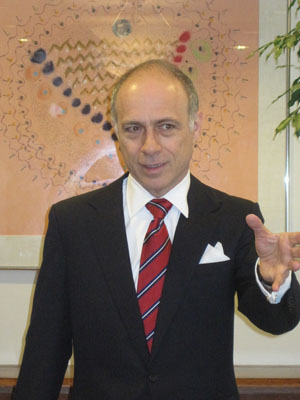
On the question of privacy, do you think there should be any difference between an education that is privately paid for and an education that is publicly paid for?
Howard: At public universities, it is already understood that anything you write on your university email is subject to inspection, perhaps without notice. And so employees at such universities are forewarned. Those of us at private universities thought that a different set of rules applied; I certainly did. Note however that private education is also publicly paid for, not only by grants to students but also by its tax-free status, and so the once assumed privilege may gradually disappear. That cuts directly into the heart of the academic enterprise, which has assumed trust, Privatsphäre, Gemeinde, and a moral basis.
Is there a distinction you would make between privacy protections and rights for a paid employee (such as a faculty member) versus a student who is paying customer of the university?
Bereich: Very generally, you violate a person’s right of privacy when you obtain personal data on that person when he or she is in a situation in which it is reasonable to have an “expectation of privacy.” Someone taking pictures of you through your third-floor bedroom window while you are dressing for dinner is likely violating your right of privacy. If you stand in your bedroom window and shout to people on the street, jedoch, what you say would not be considered private. The Duchess of Cambridge was seated outdoors when photographed topless – on the veranda of a private villa, and the photographer was said to be positioned far off, on a road. Does a famous person in a private space have an expectation of privacy when visible only with professional-grade optics from a considerable distance? Many believed so. Most institutions take the position that there is no expectation of privacy when communicating via their email systems. Es ist erwähnenswert, dass sie unterschiedliche Positionen über Telefone nehmen: Sie haben ein Recht zu erwarten, dass Ihr Anruf nicht überwacht oder aufgezeichnet haben. Der Unterschied ist zum Teil von der Tatsache, dass E-Mail ist eine permanente schriftliche Erwähnung der Basis, eine, die möglicherweise unterziehen könnte die Institution, die Haftung. Das Institut sollte eine klar artikulierte, bekannt gemacht und leicht zugängliche Informationssysteme Politik in jedem Fall. Howard: I think that all members of a community should be equally protected. Interessant, the Harvard administrator who defended the practice of looking at the mail of the resident deans said that the University did it to protect the privacy of the student. That argument did not work for me; in fact I think it is a specious argument designed to rally support from students and parents. I think it is equally important to protect the privacy of staff, Fakultät, and administrators. By the way, one faculty member pointed out that administrators should be considered staff and therefore should have their emails inspected. Needless to say, that provocative argument would not go well with administrators at Harvard or any other place.
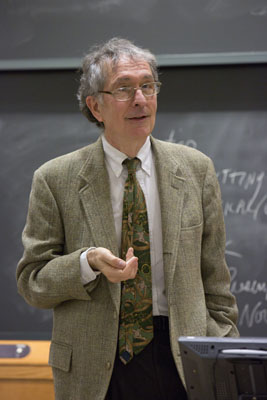
From an ethical, und / oder rechtlicher Sicht, Was glauben Sie, ist die richtige Vorgehensweise für die Harvard-Administration zu verfolgen nach einem Zwischenfall wie dieser, sowohl Harvard Vermächtnis als wissenschaftlicher Leiter und seine Integrität als moralische Gemeinschaft pflegen?
Bereich: Das Beste, was zu tun ist, um eine klare haben, eindeutige Informationssysteme Politik und um sie gleichmäßig durchzusetzen. Sie können die Regeln für die verschiedenen Fakultäten machen, students and administrative employees. Within each category, die Politik gleichmäßig aufgetragen werden sollte. It is all about transparency and fairness: if the policy says that a student’s emails are subject to being read, and the student emails his parents via his university account about how he cheated on an exam, he can’t complain if that email incriminates him. Howard: I agree absolutely with what Professor Rakesh Khurana of the Harvard Business School wrote to me. I quote here with his permission. “As an organizational behavior researcher, we teach cases like this over and over again. Und doch, no matter how many times, people seem to repeat the same mistake. It seems that one of the simplest course of actions that would have ended this would have been a simple apology: “We were under a lot of pressure in a situation that we had no experience with. We made a judgment call. It seemed right at the time. Im Nachhinein, it was wrong. We want to assure the community that something like this will not happen again.” Stattdessen, what we got was the same hair-splitting and legalese that apparently the administration board detests when it hears from students–no sense of personal accountability; splitting hairs; hiding behind technicalities, usw.” Allgemeiner, after a genuine heartfelt apology along the lines suggested by Professor Khurana, I would say that the University needs to make it clear that it will follow a course that is much more respectful of the rights of all members of the community henceforth, and that it will try to embody in its actions what it means to be a trusting ethical community. Particular organizations, institutions, and professions do differ in the extent to which they embody trust, ethisches Verhalten, a sense of community. As the best known and wealthiest university in the world, Harvard has a special responsibility to embody these virtues. Harvard’s reputation has deservedly been thrown into question by the events of the past year, as have the reputations of other schools that have experienced sexual harassment, ethical and racial slurs, drunken binges, misrepresentations to rating agencies, etc. Unless these institutions make extraordinary efforts to show that they are attempting to repair these injuries and to heal the community, they will lose the respect in which they were held for many years, and post-secondary education in the U.S. will be in jeopardy. Wie ironisch ist es, dass unsere Institutionen der freien Künste und Wissenschaften seit langem weltweit bewundert werden, and yet they now could be undermined from within.
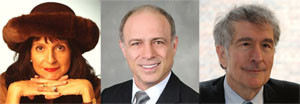
Photos courtesy of Harvard Graduate School of Education and Phillips Nizer LLC.
In der globalen Suche nach Bildung, mit mir und weltweit renommierten Vordenkern wie Sir Michael Barber (Vereinigtes Königreich), DR. Michael Block (US-), DR. Leon Botstein (US-), Professor Ton Christensen (US-), DR. Linda Hammond-Liebling (US-), DR. Madhav Chavan (Indien), Professor Michael Fullan (Kanada), Professor Howard Gardner (US-), Professor Andy Hargreaves (US-), Professor Yvonne Hellman (Niederlande), Professor Kristin Helstad (Norwegen), Jean Hendrickson (US-), Professor Rose Hipkins (Neuseeland), Professor Cornelia Hoogland (Kanada), Herr Jeff Johnson (Kanada), Frau. Chantal Kaufmann (Belgien), DR. Eija Kauppinen (Finnland), Staatssekretär Tapio Kosunen (Finnland), Professor Dominique Lafontaine (Belgien), Professor Hugh Lauder (Vereinigtes Königreich), Professor Ben Levin (Kanada), Herr Ken Macdonald (Vereinigtes Königreich), Professor Barry McGaw (Australien), Shiv Nadar (Indien), Professor R. Natarajan (Indien), DR. PAK NG (Singapur), DR. Denise Papst (US), Sridhar Rajagopalan (Indien), DR. Diane Ravitch (US-), Richard Wilson Riley (US-), Sir Ken Robinson (Vereinigtes Königreich), Professor Pasi Sahlberg (Finnland), Andreas Schleicher (PISA, OECD), DR. Anthony Seldon (Vereinigtes Königreich), DR. David Shaffer (US-), DR. Kirsten Sivesind (Norwegen), Kanzler Stephen Spahn (US-), Yves Theze (Lycee Francais US-), Professor Charles Ungerleider (Kanada), Professor Tony Wagner (US-), Sir David Watson (Vereinigtes Königreich), Professor Dylan Wiliam (Vereinigtes Königreich), DR. Mark Wormald (Vereinigtes Königreich), Professor Theo Wubbels (Niederlande), Professor Michael Young (Vereinigtes Königreich), und Professor Zhang Minxuan (China) wie sie das große Bild Bildung Fragen, die alle Nationen heute konfrontiert erkunden. Die Global Search for Education Community-Seite
C. M. Rubin ist der Autor von zwei weit Lese Online-Serie für den sie eine 2011 Upton Sinclair Auszeichnung, “Die globale Suche nach Bildung” und “Wie werden wir gelesen?” Sie ist auch der Autor von drei Bestseller-Bücher, Inklusive The Real Alice im Wunderland.



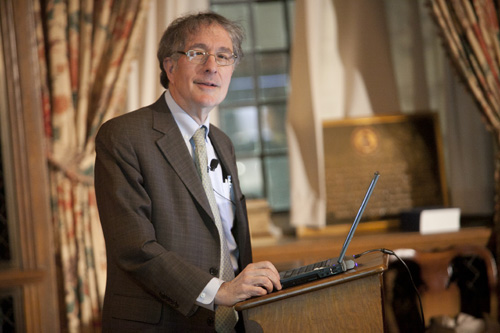
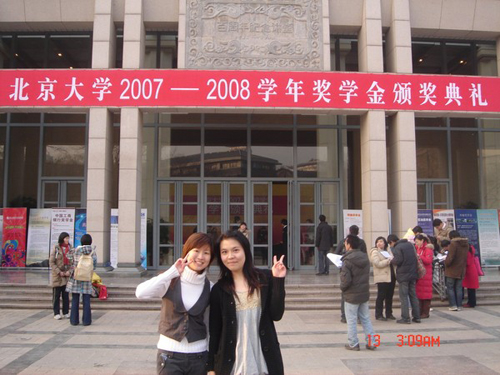
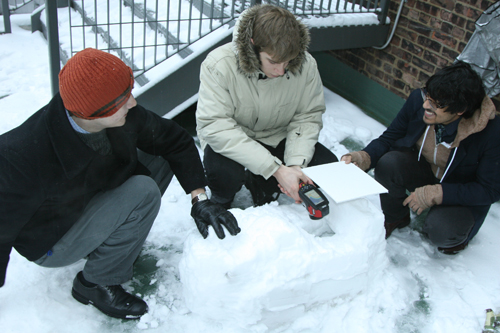
Jüngste Kommentare